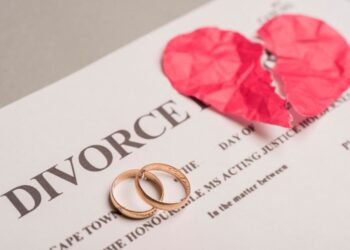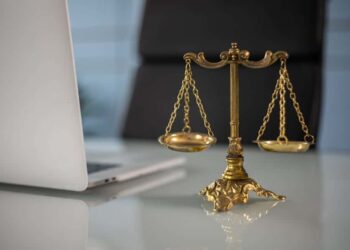The intricate relationship between legal ethics and public relations in law firms is a compelling topic that requires careful scrutiny. While it is paramount to uphold transparency and ethical communication, the delicate balance with confidentiality cannot be overstated. A thorough understanding of crisis management and the role of social media in shaping public perception is also essential. As we further explore these complexities, the question that arises is, how can law firms develop and implement flexible ethical codes that not only adapt to evolving challenges but also maintain the trust of their clients and the public?
Understanding Legal Ethics in PR
As a PR professional’s mainstay, understanding legal ethics in the domain of public relations is indispensable. It forms the bedrock upon which client relationships are built and maintained. Upholding legal obligations while guiding through ethical dilemmas enhances professional integrity; consequently, trust building becomes a natural progression.
In the ever-evolving landscape of media ethics, a PR professional’s role is to balance the public perception with the truth, ensuring regulatory compliance is met. The complexity arises when these obligations conflict with one another. For instance, maintaining client confidentiality might hinder the transparency demanded by the public. This creates an ethical dilemma, challenging the PR professional’s ability to uphold legal obligations while also ensuring the client’s best interests.
Understanding and effectively managing these dynamics is not only a matter of professional integrity but also a legal necessity. PR professionals are required to adhere to various legal and ethical standards, from copyright laws to privacy regulations. Failure to do so can result in legal repercussions, damaging both the client and the professional’s reputation. As a result, a profound understanding of legal ethics in PR is not only beneficial but imperative for success.
The Importance of Transparency
The concept of transparency in PR, while seemingly straightforward, invites a deeper exploration of its meaning and implications within a legal context. Balancing transparency with confidentiality presents a critical challenge that requires careful navigation, particularly in a public relations landscape. By understanding the benefits of transparency, PR professionals can foster a culture of trust and authenticity, ultimately contributing to the success and credibility of their organizations.
Defining Transparency in PR
In the domain of Public Relations, transparency holds a pivotal role. It is the practice of openly sharing information, thereby promoting trust, respect and stakeholder engagement. Transparency is not simply about providing access to data, but about making that information comprehensible and actionable for all stakeholders. It involves a commitment to information accessibility, meaning that the information provided is easily understood and usable by the audience.
The essence of transparency in PR is to guarantee that all communications are accurate, honest, and timely. This extends to all aspects of a law firm’s operations, from the manner in which they handle case files, to their financial operations and their engagement with both clients and the public. It must be an integral part of their organizational culture, rather than an afterthought.
Without transparency, PR falls short in its role as a bridge between organizations and their publics. Transparent practices guarantee that stakeholders are informed and can make knowledgeable decisions about their relationship with the organization. Consequently, transparency is not just ethically sound, but also strategically beneficial, as it fosters trust, reinforces reputation, and strengthens long-term relationships.
Transparency Vs Confidentiality
Balancing the scales between transparency and confidentiality can be a challenging tightrope walk in the Public Relations sphere, particularly for legal firms. The essence of this issue lies in the intersection of client trust, professional integrity, and ethical dilemmas.
To navigate this intricate landscape, law firms need an in-depth understanding of both transparency and confidentiality. Transparency, in this situation, refers to open information sharing that boosts public perception and enhances stakeholder relations. However, it is vital to identify and respect confidentiality limits to maintain client trust and adhere to legal obligations.
The ethical dilemmas arise when these principles conflict. For instance, a firm might be tempted to disclose information that would benefit its public image but potentially infringe upon a client’s confidentiality. Such a situation calls for a judicious assessment of the potential impacts on client trust, stakeholder relationships, and public perception.
Ultimately, law firms must work towards a balance that upholds professional integrity while meeting their public relations objectives. This requires a nuanced approach that respects both transparency principles and confidentiality obligations. It’s a delicate balance, but one that is essential to navigate the complex world of legal PR.
Benefits of Transparency
Without a doubt, transparency plays a pivotal role in the domain of public relations for legal firms. It serves as the bedrock for client trust, fostering a sense of security and confidence in the firm’s practices. Through clear information sharing, clients are brought into the loop, promoting effective stakeholder engagement and allowing for audience education on complex legal matters.
Transparency further underscores the ethical accountability of a firm. By being open about their operations, firms demonstrate their commitment to legal compliance, enhancing public perception and bolstering brand loyalty. This openness also guarantees communication clarity, eliminating any ambiguity that could potentially harm a firm’s reputation or client relationships.
Moreover, transparency in PR equips firms with a level of crisis preparedness. When information is shared openly, potential issues can be flagged early and appropriately managed, preventing significant reputational damage. By embracing transparency, legal firms can navigate the intricate landscape of PR with integrity and professionalism, fostering an environment of trust and understanding with their stakeholders. The benefits of transparency, consequently, are manifold and significant, contributing to the overall health and success of a firm’s PR strategies.
Balancing Privacy and Disclosure
The delicate dance of maintaining privacy while guaranteeing adequate disclosure is a pivotal aspect of legal ethics in public relations. This balance is particularly paramount for law firms, which regularly handle sensitive client data. Privacy concerns and disclosure dilemmas are intertwined, each presenting unique challenges that must be maneuvered with tact and professionalism.
Privacy concerns are primarily about safeguarding client information. Law firms must guarantee they have robust systems in place to protect this data. Any breach of privacy not only undermines the trust of current clients but can also deter potential clients.
Conversely, disclosure dilemmas often arise when there’s a pressing need to share information, either with the public or other relevant parties. This could be due to statutory obligations or to maintain transparency. However, disclosures must be made judiciously; divulging too much information can infringe on privacy rights.
In maneuvering this balance, law firms need to establish clearly defined policies that adhere to legal and ethical guidelines. This includes protocols for data handling and rules for information disclosure. The aim is to maintain a level of transparency that fosters trust, without compromising on the privacy rights of clients. This equilibrium is indeed a challenging yet vital aspect of legal PR ethics.
Ethical Crisis Management Strategies
As we shift to the subtopic of Ethical Crisis Management Strategies, we will evaluate the importance of crisis communication essentials in the PR field. We will further analyze how ethically mitigating damage can influence the outcome of a crisis. Finally, we will explore various techniques for restoring a company’s reputation post-crisis, drawing on ethical considerations.
Crisis Communication Essentials
Often, professionals are confronted with unforeseen crises that require swift, ethical, and effective communication strategies. Crisis preparedness is paramount in these situations, allowing law firms to respond quickly and efficiently. As part of this preparation, firms must develop a robust communication plan tailored to various crisis scenarios. Implementing this plan, when necessary, promotes transparency and maintains trust with clients, media, and the public.
Effective communication tactics during a crisis involve timely dissemination of accurate information. Law firms must be ready to provide clear explanations, ensuring that all involved understand the situation. This requires a balance between legal jargon and plain language. Firms must also be empathetic and responsive to concerns or queries, which can diffuse tension and aid in maintaining relationships.
Moreover, law firms must prioritize ethical considerations in their communication strategies. Enforcing honesty and integrity, even in difficult situations, upholds the firm’s reputation and reduces potential negative impacts. It is essential to remember that the way a crisis is managed can greatly influence the firm’s image post-crisis.
Mitigating Damage Ethically
Steering through the turbulent waters of a crisis calls for more than just effective communication strategies; it demands a proactive approach to minimize damage while strictly adhering to ethical guidelines. Law firms are expected to demonstrate their commitment to ethical considerations in crisis management. This commitment includes actions that are transparent, accountable, and considerate of all stakeholders involved.
Damage control begins with honesty. Firms should provide a truthful account of the situation, demonstrating their commitment to ethical conduct and accountability. This step not only helps in damage control but also strengthens trust among stakeholders. Then, the firm must assess the scale of the crisis, identify the stakeholders affected, and develop an action plan to address the situation ethically.
As part of the damage control process, law firms should also consider timely communication. Promptly sharing updates and actions taken can help manage the crisis effectively. Additionally, firms should guarantee their actions are guided by a clear understanding of ethical considerations, including respect for confidentiality and privacy, commitment to fairness, and adherence to professional codes of conduct.
In essence, ethical crisis management strategies should be at the forefront of a law firm’s damage control efforts, helping minimize impact while upholding integrity and trust.
Reputation Restoration Techniques
Restoring a tarnished reputation, particularly in an ethical crisis, requires strategic planning and execution. Reputation management is a critical aspect of business operations, as it directly influences public perception of the organization. It involves a systematic approach that starts with understanding the root cause of the crisis, followed by crafting an appropriate response.
In an ethical crisis, transparency is paramount. Law firms should openly admit any mistakes made, regardless of the potential short-term reputational damage. This honesty can help rebuild public trust, fostering a perception of the firm as accountable and responsible.
The next step in reputation restoration is a commitment to change. This involves addressing the causes of the ethical lapse and implementing measures to prevent recurrence. Clearly communicate these changes to the public, demonstrating a commitment to ethical conduct.
Navigating Social Media Ethically
In the expansive sphere of public relations, the ethical navigation of social media presents a unique and intricate challenge. The surge in digital communication platforms has necessitated the establishment of social media policies within law firms. These policies not only govern the firm’s online activities but also serve as a map to guide ethical conduct, thereby mitigating the risk of reputational damage.
In the domain of online reputation, the ethical use of social media becomes paramount. Information disseminated through social media platforms has the potential to reach an extensive audience almost instantaneously. As a result, any misstep can considerably tarnish a firm’s reputation. It is essential to maintain a fine balance between advocating for clients and upholding the ethical standards set by the industry.
To navigate social media ethically, law firms must guarantee that their social media policies incorporate guidelines on avoiding the dissemination of misleading information, respecting confidentiality, and maintaining professional conduct. This approach not only protects the online reputation of the firm but also safeguards the clients’ trust, which fosters a healthy professional relationship. Clear and consistent adherence to these guidelines guarantees ethical social media use, thereby strengthening the firm’s position in the digital landscape.
Role of Lawyers in PR Ethics
Steering the domain of public relations ethics, lawyers play a pivotal role. Their responsibilities extend beyond mere legal representation; they are instrumental in shaping a firm’s ethical conduct when dealing with public relations activities.
Understanding and negotiating the tricky landscape of PR ethics is one of the essential lawyer responsibilities. They are expected to provide guidance on maintaining honesty, transparency, and fairness in the firm’s dealings with the public. This involves advising on sensitive matters such as the disclosure of information, handling criticisms, and managing reputational risks.
Lawyers are also often faced with ethical dilemmas in this situation. Balancing the interests of the firm and the public, and ensuring compliance with both legal and ethical norms can be challenging. For instance, they might have to decide whether to disclose detrimental information about the firm to uphold transparency or to withhold it to protect the firm’s reputation.
In these scenarios, lawyers are expected to apply their legal expertise, ethical judgment, and strategic thinking to navigate through the complexities. Their actions and decisions greatly influence the firm’s ethical standards in public relations, thereby confirming their indispensable role in PR ethics.
Ethical Guidelines for Media Interactions
Building on the significant role of lawyers in guiding ethical conduct in public relations, it is equally important to focus on the specifics of ethical guidelines for media interactions. Law firms must uphold the integrity of the profession and maintain public trust during such interactions.
Media training is essential to guarantee that lawyers understand and uphold these ethical guidelines. It provides practical scenarios and equips them with effective communication strategies, maintaining the balance between transparency and client confidentiality. Training should also instil the understanding that media interactions should never interfere with the administration of justice or compromise client interests.
Ethical storytelling, another important component of media interactions, involves presenting facts accurately and without distortion. Lawyers should avoid speculation, exaggeration, or any form of misinformation. While it is important to narrate a compelling story, it should never be at the expense of truth and justice. For more details on media training for lawyers, visit https://www.berbay.com/nyc/.
Implementing Ethical PR Policies
Establishing ethical PR policies within a law firm serves as the cornerstone of its public relations strategy. This process, however, extends beyond drafting and codifying rules. The true essence of policy implementation lies in its integration into daily operations.
Ethical training is pivotal in this regard. Training programs should be designed not only to familiarize staff with established policies but also to cultivate an ethical mindset. This involves understanding the implications of their actions and fostering a culture of responsible decision-making.
Moreover, policy implementation should not be a one-time event. It requires constant monitoring and feedback mechanisms to guarantee adherence. Regular audits can identify gaps in understanding or application, and provide insights for policy refinement.
Additionally, the ethical code should be flexible enough to adapt to changing circumstances. Law firms operate in a dynamic environment where new ethical dilemmas may emerge. A rigid, static policy might not provide adequate guidance in such scenarios.
Frequently Asked Questions
What Are the Potential Legal Repercussions for Unethical PR Practices in Law Firms?
Unethical PR practices in law firms can result in severe legal repercussions, including litigation and penalties. They can erode client trust and cause significant reputational damage, undermining the firm’s credibility and long-term business prospects.
How Do International Laws Impact PR Ethics for Globally Operating Law Firms?
International laws greatly impact PR ethics for globally operating law firms. Understanding global compliance and demonstrating cultural sensitivity are essential to navigate diverse legal landscapes and maintain ethical standards across different jurisdictions.
Can PR Ethics Vary Depending Upon the Specific Field of Law Practice?
Yes, PR ethics can vary by law practice. Fields such as criminal defense, corporate, family, intellectual property, environmental, and employment law each have unique ethical considerations, impacting public relations strategies and practices differently.
How Can Law Firms Train Their Employees in PR Ethics?
Law firms can effectively train their employees in PR ethics through organized employee workshops and by analyzing case studies. These methods provide hands-on experience and practical understanding of ethical boundaries in public relations.
What Role Does the PR Team Play in Ensuring Ethical Compliance in a Law Firm?
The PR team plays an essential role in ensuring ethical compliance in a law firm. They devise PR strategies aligned with ethical guidelines, ensuring all communications and actions uphold the firm’s integrity and professional standards.










